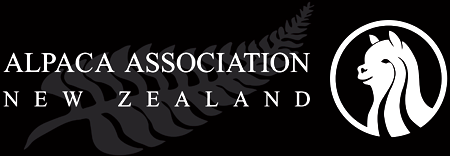For members wishing to export alpaca or to learn more about what is required please refer to the Members Section - Export Forms and Resources.
AANZ Members - Export Forms and Resources
News
December 2024
EWG/MPI update December 2024
On Thursday 12 December 2024, the Export Working Group had an online meeting with MPI members Bernd Hey, Angela Ravagnani and Colin O’Connor.
The agenda covered two points as follows:
- The new OMAR for Camelids to the UK and Eu, and
- Imports from Australia.
OMAR
Within the new OMAR, MPI have identified an item that may create a problem for exporting Alpaca over to the UK or Eu after 2026. The issue is centered around the use of medications on Alpaca, that they don’t want to get into the human food chain. (This is despite the fact that Alpaca are generally not exported as a meat animal – however neither the UK nor Eu have accepted that yet). At this stage there are no medications listed within the NZ - Agricultural Compounds and Veterinary Medicines Act 1997 that if administered in isolation, will breach the OMAR. However, there are several that if administered in combination, will create a breach.
One point that MPI made was that this change impacts all meats likely to enter the human food chain, so MPI are working on this for all meat exports across NZ, so it will get actioned within the ACVM Act and Vets will be aware of this by the time it becomes an issue. Where alpaca breeders/exporters may have a problem is if someone decides to use a home remedy, and not following the ACVM Act and/or not notifying a vet who may administer something else that creates the conflict of the OMAR. More to come on this.
Another point that was raised was the difficulties of shipping Alpaca on aircraft that do not go direct to the UK. The UK will not allow a transfer from one aircraft to another except in countries that have third country status for the UK. So a flight stop over in Singapore for example, would need a written dispensation to transfer from one flight to another and create delays, costs and potential hold ups. When discussing this with MPI, they could understand our concerns and felt that our best strategy for change in this space would be to lobby the UK customer base to get them to lobby the authorities making the decisions within the UK. Very little else we or MPI can do from this end.
Imports from Australia
The discussions in this space were limited as Bernd and his team are no longer part of the import team. We have another contact within MPI for that, however one question that was asked was whether alpaca imported from Australia, would be required to be kept in NZ for 6 months and then on shipped to UK or the Eu when the Q-Fever issues are sorted. The consensus was that the only issue would be around TB. In NZ and for any animals coming out of NZ, there needs to be a full suite of TB records as per the previous OMAR and the TB rules on NZ. But Australia have declared that they are TB free. The question for the UK and Eu is whether they accept that declaration from Australia or accept that NZ accept that declaration from Australia, or whether they require the same TB records for any animal that transits via NZ. EWG will keep the membership updated.
IN early 2025, the EWG propose meeting with the import group of MPI and will provide an update to the members after that meeting. In addition to this, the EWG will meet with MPI twice a year in order to maintain ongoing dialogue and be kept informed of any proposed changes to policy relevant to alpaca exports.
Have a Merry Christmas all, from the EWG,
December 2023
We also have the great pleasure of announcing an early Christmas present. MPI have just advised us that the European Union (EU) have accepted the application and evidence that New Zealand is Blue tongue free and they will reinstate New Zealand with a “third country status” in their import protocols.
While this is great news for alpaca exporters it is also a significant relief for NZ agriculture. Had the decision gone the other way, NZ would possibly need to change how it monitors for Blue Tongue virus and potentially most other diseases to retain third country status for all other agricultural exports.
This is a huge milestone and one worth celebrating alongside the export working group who have been working tirelessly to resolve this issue. Great work team.
PREVIOUSLY.....
This notice is to help our members understand the facts behind why Alpaca are currently blocked from being imported into New Zealand from Australia.
The reason is relatively simple. The Government agency responsible for biosecurity of New Zealand - MPI – (Ministry or Primary Industries - website can be found here: https://www.mpi.govt.nz/) have concerns that the Q-Fever test being used in Australia to test Alpaca, has not been proven to MPI as being scientifically accurate for Alpaca.
MPI has a duty to protect the biosecurity of New Zealand. New Zealand is one of the few countries in the world that does not currently have Q-Fever. (Australia does). Alpaca can catch Q-Fever and Q-Fever can be passed onto Humans.
As a result MPI NZ have blocked the importation of Alpaca from Australia and asked their counterpart in Australia, (DAFF) Department of Agriculture, Fisheries and Forestry, (see website here - https://www.agriculture.gov.au/ ) to re-apply to MPI for the boarders to be re-opened once they (DAFF) have provided documentary evidence that the Q-Fever testing methodology being used in Australia for Alpaca, has been scientifically verified as accurate (Specifically for Alpaca).
Of note is that the test currently being used in Australia is essentially the same test that they use for most other mammals and has been scientifically tested and verified as accurate for animals such as goats etc, but this validation has not been done for Alpaca.
Assumptions have been made that because this test is accurate for goats it will be accurate for Alpaca. Over time it may be proven that this assumption is correct, but MPI do not accept assumptions. MPI are looking for scientifically proven, documented facts that support this assumption.
Legally MPI can only accept an application to reopen the boarders from Australia, from their counterpart in Australia (DAFF).
Once any such application is received from DAFF, the MPI will have their own scientists independently review and validate the evidence provided.
The Export Working Group and the National Council must point out that we have no ability to influence MPI’s decision in this matter, as this is a national bio-security issue and must be resolved Government to Government under current law.
The Export Working Group have:
- Asked the AAA (Australian Alpaca Association) to work with DAFF to establish a scientific case for making an application.
- To advise us when that application has been made.
- Once that is done, we will use our trusted relationship with MPI, to ask them to consider this application with priority for the NZ alpaca industry.
But there is no point in making that request until DAFF have made the application.
One of our frustrations is that we have repeatedly communicated this information to Steve Ridout in his capacity within the AAA Board, but we continue to get feedback from them that the AANZ need to convince the MPI to change their mind. Clearly, we cannot.
We hope this helps you all to understand what is really going on.
Please feel free to ask more questions.
Kind regards
Bruce Taplin
AANZ President.
5th December 2023
AANZ Export Working Group - Q Fever
NZ doesn’t have Q-Fever and that is why MPI needs to be sure that there is an accurate Q-Fever test for Camelids so it doesn’t enter NZ.
Australian exporters reported conflicting results with the ELISA and the CFT test for Q fever diagnosis and there was growing evidence that their sensitivity of the only two test options (CFT and ELISA) was not good enough for individual animal movement for camelids.
"Q fever is a widespread disease caused by the bacteria Coxiella burnetii, which can infect mammals, birds, reptiles and arthropods. It causes a mild disease in ruminants, but can cause abortions and still births in cattle, sheep, and goats. It is a zoonosis, a disease of animals that can infect humans. Q fever can be spread by ticks which pass the bacteria from an infected to susceptible animal, or contracted by drinking unpasteurised infected milk. First identified in Australia in 1935, Q fever has since been found worldwide, with the exception of New Zealand. Q fever is listed in the WOAH Terrestrial Animal Health Code and Member Countries and Territories are obligated to report occurrences of the disease to the WOAH according to the WOAH Terrestrial Animal Health Code". Quoted from WOAH
Full details and the zoonotic implications are in the link below.
Q Fever - World Organisation for Animal Health

